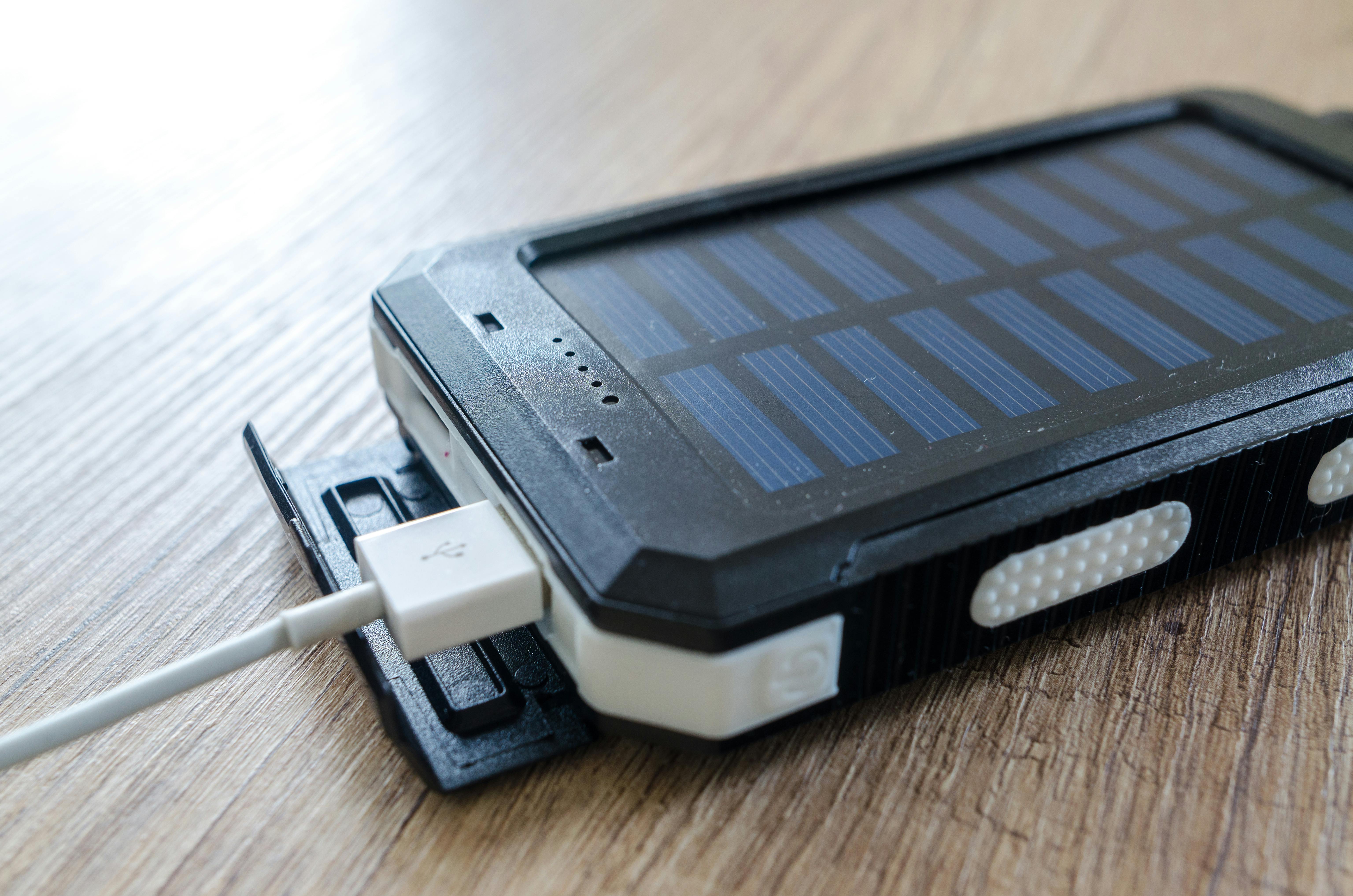If you’ve been pondering over whether to incorporate a battery backup for your solar system, this helpful article is just for you. Investigating the pros and cons of solar battery backups, the article is designed to equip you with balanced, factual insight to make an informed decision. Conveyed in clear and simple American English, it prides itself on delivering trustworthy, valuable information, making your reading not just stirring but worthwhile. Let’s journey together into the world of solar energy and explore if introducing a battery backup aligns with your unique needs.

Understanding Solar Energy and Battery Backup
Definition of solar energy
Solar energy is captured from the sun’s rays, which is then converted into electricity for a myriad of uses. This form of energy is an increasingly practical, clean, and renewable solution to mankind’s rising power demands.
Understanding the basic working mechanism of solar energy systems
Solar energy systems function by using photovoltaic cells (usually in the form of solar panels) to convert sunlight into electric power. When sun rays hit these cells, they cause electrons to shift, producing an electrical current. This direct current (DC) is then transformed into alternating current (AC) to power homes and businesses.
Introduction to solar energy battery backups
A solar energy battery backup is a storage solution that saves any excess power generated by your solar panels. The stored power can be used when there’s a power outage, during nighttime, or when the power demand is higher than your panels’ production capacity.
The role of a battery backup in a solar energy system
The battery backup plays a critical role in a solar energy system. It ensures you have a reliable power supply, despite fluctuations in your solar power output or power outages from the grid. With a battery backup, you’re assured of consistent power accessibility, thus enhancing your energy independence.
The Principle Behind Solar Battery Backups
How solar battery backups store power
Solar battery backups store excess power that’s not used immediately. During peak sunlight hours, if your solar panels produce more power than you’re using, that energy is directed for storage in your battery backup.
The technology behind solar battery backups
The technology at work in solar battery backups is quite impressive. It involves capturing and storing excess power the same way a bank stores money. Batteries use several technologies, with the leading ones being lead-acid and lithium-ion.
The process of power transfer in solar battery backups
Power transfer in solar battery backups is straightforward. When your solar panels generate more power than your home or business uses, the excess is stored in the battery backup. The stored energy can then be drawn once there’s a need, such as during evening hours or power outages.
Benefits of Using a Battery Backup for Solar
Power supply during outages
One of the main benefits of a solar battery backup is that it offers a steady power supply during outages. This reliability makes it an excellent investment for areas experiencing frequent power outages.
Energy independence
Battery backups increase your energy independence. Since your system can store surplus solar energy for use during nighttime or cloudy days, you don’t have to rely on the grid as much.
Potential cost savings and financial incentives
Solar battery backups also present potential cost savings since they reduce your dependency on grid electricity. What’s more, in some regions, financial incentives are available for installing solar battery backups, further reducing the upfront cost.
Environmental benefits
Moreover, solar energy is a clean, renewable energy source, making it environmentally friendly. The more your dependency shifts to solar power, the less you contribute to carbon emissions, playing your part in combating climate change.
Downsides of Using a Battery Backup for Solar
Initial high installation cost
One of the downsides of using a battery backup for solar is the high initial installation cost, which can discourage potential users. Nonetheless, it’s crucial to consider the long-term benefits and savings.
Energy losses during conversion and storage
There may also be some energy losses during the conversion and storage processes. These losses, although minimal, might affect the overall efficiency of the system.
Maintenance and lifespan concerns
A battery backup requires regular maintenance and will ultimately need replacement since it has a finite lifespan.
Physical space requirements
Also, a physical space for the backup battery is necessary, which could pose a challenge for those with limited room.

Considerations When Choosing a Battery Backup for Solar
Battery capacity
One main factor to consider is the battery’s capacity. This will largely depend on your personal power consumption and peak energy demands.
Battery lifespan and warranty
Also, consider the battery’s lifespan and the type of warranty offered. A lengthier warranty from a reputable company is often indicative of the battery’s quality and reliability.
Compatibility with existing solar system
Check if the battery backup is compatible with your existing solar system. Since not all systems are created equal, compatibility is crucial.
Cost and financial returns
Also, weigh the total cost, considering installation, maintenance, and eventual replacement costs against the potential savings and financial return.
Environmental impact
Lastly, the battery’s environmental footprint is worth contemplating, especially if ‘greener living’ is your motivation for considering solar.
Alternatives to Battery Backup for Solar
Grid-tied solar systems
Grid-tied solar systems are an alternative to battery backup systems. They involve connecting your solar power system directly to the local utility grid.
Generator-backed solar systems
Generator-backed solar systems are another alternative where your solar system is coupled with a traditional generator for power backup.
Demand response programs
Some opt for demand response programs, where utilities incentivize customers to reduce electrical usage during peak periods.
Peer-to-peer (P2P) energy trading
Lastly, P2P energy trading allows users to buy and sell excess energy to and from their peers.

Battery Backup Technologies for Solar Systems
Lead-acid batteries
Lead-acid batteries are traditional and tend to be less expensive but also less efficient with a shorter lifespan compared to other technologies.
Lithium-ion batteries
On the contrary, new-age lithium-ion batteries have higher efficiencies and longer lifespans, although at a higher price point.
Saltwater batteries
Saltwater batteries are an emerging technology that offers an environmentally friendly backup solution.
Comparing different battery technologies for solar systems
When determining the best technology for your solar battery backup, assess the cost, efficiency, lifespan, and environmental impact of each one.
Case Studies: Uses of Battery Backup for Solar
Battery backup in residential solar systems
There are numerous successful instances of battery backups applied in residential solar systems. Homes fitted with solar panels and an efficient battery backup see significant reductions in their electricity bills and enjoy increased energy independence.
Battery backup in commercial solar systems
Commercial premises have also successfully implemented solar systems with battery backups. These backups help businesses maintain operations in power outages while showcasing their commitment to sustainable, green energy.
Battery backup in off-grid solar systems
Off-grid solar power systems with battery backups have proven to be game-changers, providing energy autonomy in remote areas.
Success stories and lessons learned
Collectively, these examples provide affirming success stories and valuable lessons, reinforcing the worthiness of considering a battery backup for your solar system.
Future Trends in Solar Battery Backup Systems
Advancements in battery technology
In future, advancements in battery technology are likely to address current drawbacks associated with cost, efficiency, and lifespan.
Regulatory changes and their impact
Regulatory changes could also drive the adoption of solar battery backups, especially with policies supporting renewable energy resources.
Emerging market trends in solar battery backup systems
Lastly, emerging market trends are also expected to shape the future of solar battery backup systems. As the demand for green energy continues to grow, so will the demand for solar battery backups.
Concluding Thoughts: Should You Use a Battery Backup for Solar?
Weighing the pros and cons
Ultimately, when deciding whether to use a battery backup for solar, you need to weigh the pros and cons. While the initial cost may seem high, the long-term benefits may justify the investment.
A thorough assessment of personal power needs
A thorough assessment of your power needs will also help in making an informed decision. Remember that your energy consumption habits and needs are unique and will significantly impact your choice.
The ultimate decision based on personal criteria and future outlook
Lastly, base your decision on your personal criteria and future outlook. Consider your living or work environment, financial capability, and commitment to environmental conservation. If these align with the features of a solar battery backup system, it might be the right choice for you.
